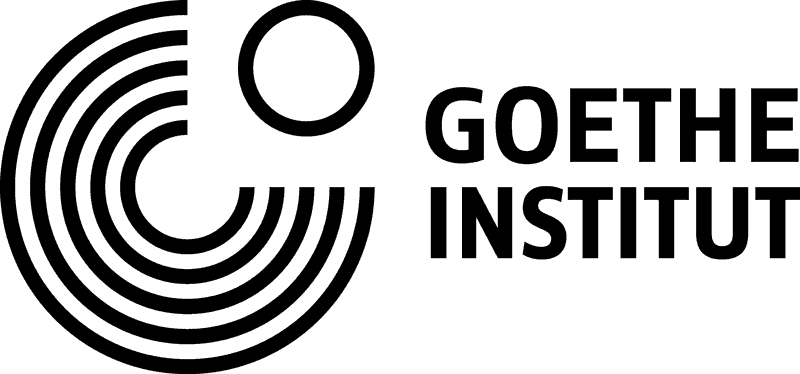Uprooting for Progress - A Discussion about Beijing’s Greenbelt
Talk #4:
Green Belt
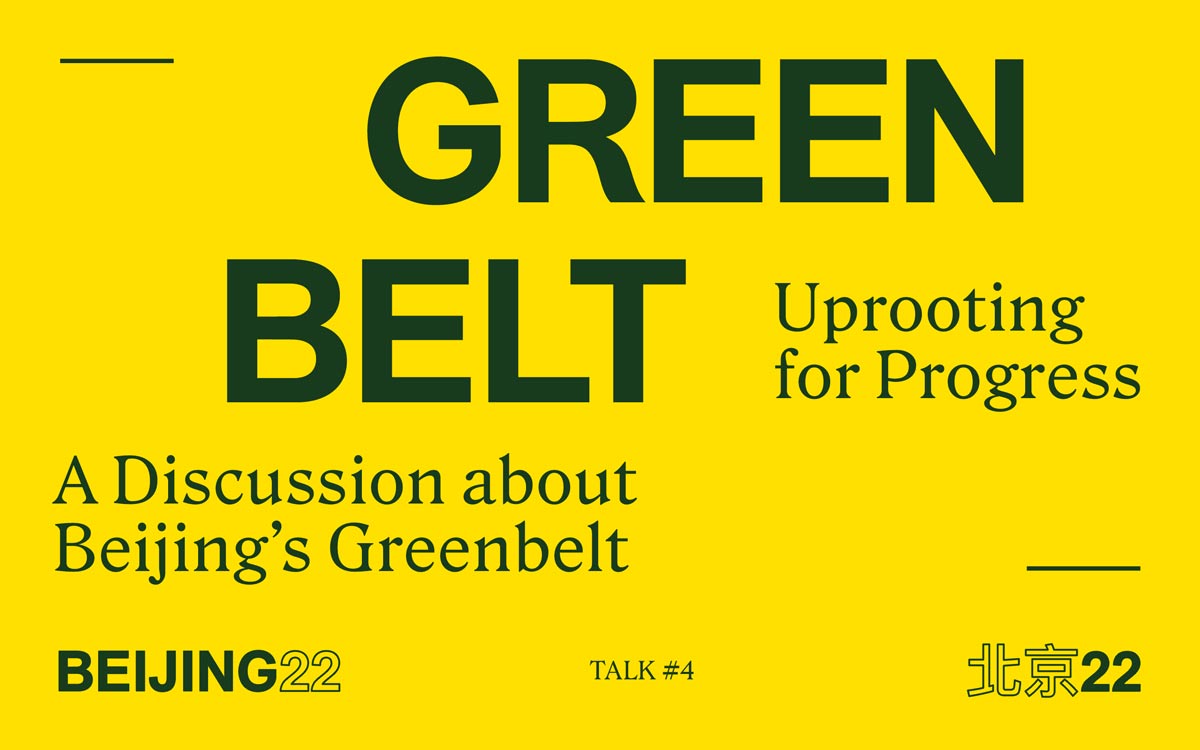
Date: 2.11.2019
Time: 1:30 – 3:30 pm
Language: Chinese/ English
Complete panel (only chinese and low-res) :
A common problem that cities all around the world are sharing is the growing urban pollution problem. It influences the urban environment in which people live, the air city dwellers breathe, the water they drink and bathe in, the indoor and outdoor noise they hear, and the geological and climate conditions they experience. Air pollution and noise exposure in the world increased steadily as urbanization progressed. Enough provision of green space such as greenbelts within urban areas is regarded as an effective way to mitigate environmental deterioration, which is associated with rapid urbanization.
Beijing is also using greenbelts to develop towards an “Eco-City” and achieve the aim of “Green Olympic City”. This is going hand in hand with presidents Xi Jinping’s flagship foreign policy: “The Belt and Road Initiative pursues the vision of green development and a way of life and work that is green, low-carbon, circular and sustainable.”
The greenbelt should tackle a great number of issues Beijing is facing: The project is expected to improve air quality, hamper sandstorms, provide green space to local people, and subsequently promote sustainable development of Beijing. As the urban expansion of Beijing sped up towards the transition to Jing-Jin-Ji, the greenbelt implementations are under even greater pressure. While the new plan for Beijing looks impressive on paper, this “progress” affects the population of Beijing especially in the peripheries of the city profoundly, that get uprooted, but might never profit from these green policies. This panel wants to take a close look at what this large-scale transformation means for the lives of people in the city that the greenbelt intends to change for the better.
Moderation:
Sam Kay is a PhD candidate in geography at Ohio State University and is writing his dissertation about "Uprooting People, Planting Trees: Disentangling Beijing’s Poverty Belt and Greenbelt". His work focuses on the intersection of urbanization and politics of the environment. He has taught at Tsinghua University, and is the recipient of Fulbright and Blakemore fellowships.
Panelists:
Dr Yimin Zhao, Assistant Professor in Urban Planning and Management, Renmin University of China. Dr Zhao's research focuses on the socio-spatial processes of urban change, attending particularly to the role of the state in politico-economic dynamics of urban land and environment. Trained in Human Geography and Urban Studies at the London School of Economics, he has successfully finished his previous project on Beijing’s green belts and is now further developing his research expertise on the urban and the state by investigating the nexus of urban infrastructure, land and the everyday life – both in and beyond East Asia.
Song Yi is a curator, writer and film maker. He was a founder of the Migrant Workers Video Collective, artistic director of art space “Institute for Provocation”, founder of “Bloom绽” curating collective for contemporary and urban planning. He was senior editor of LEAP magazine (2013-2017), former Head of Exhibition at Long March Space (2008-2012), coordinated “Ho Chi Minh trail” project.
→ look up @ Gothe Institute
view more
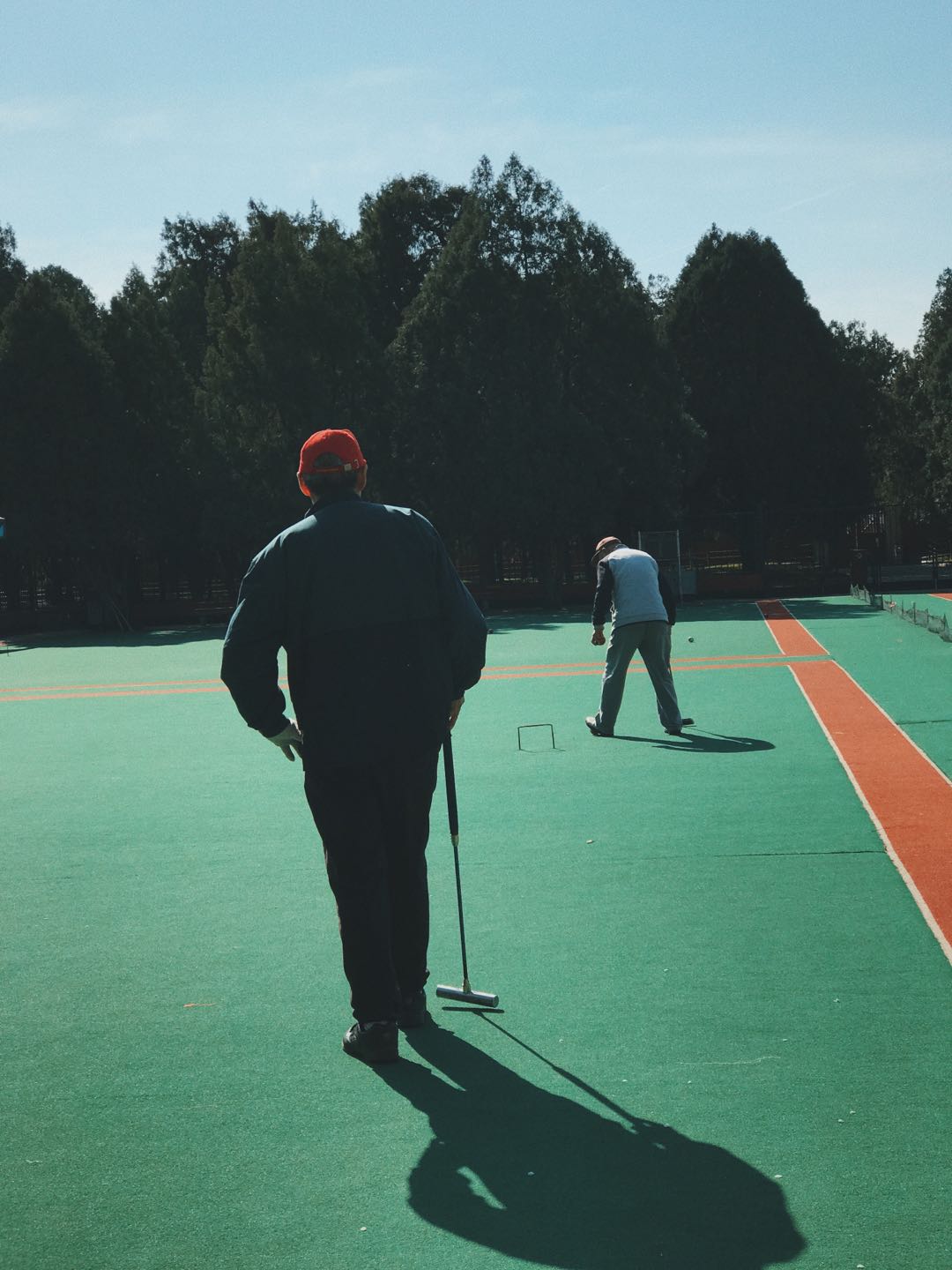 Place of the Day – Urban Utopia and the Nostalgic Garden
by Weili Zhang
This essay discusses the titular terminologies (Utopia, Nostalgia, Garden and Place) in relation to each other, showing how various concepts are interlinked through a brief account of history and observations of contemporary Chinese society.
positions
→ featured
Place of the Day – Urban Utopia and the Nostalgic Garden
by Weili Zhang
This essay discusses the titular terminologies (Utopia, Nostalgia, Garden and Place) in relation to each other, showing how various concepts are interlinked through a brief account of history and observations of contemporary Chinese society.
positions
→ featured
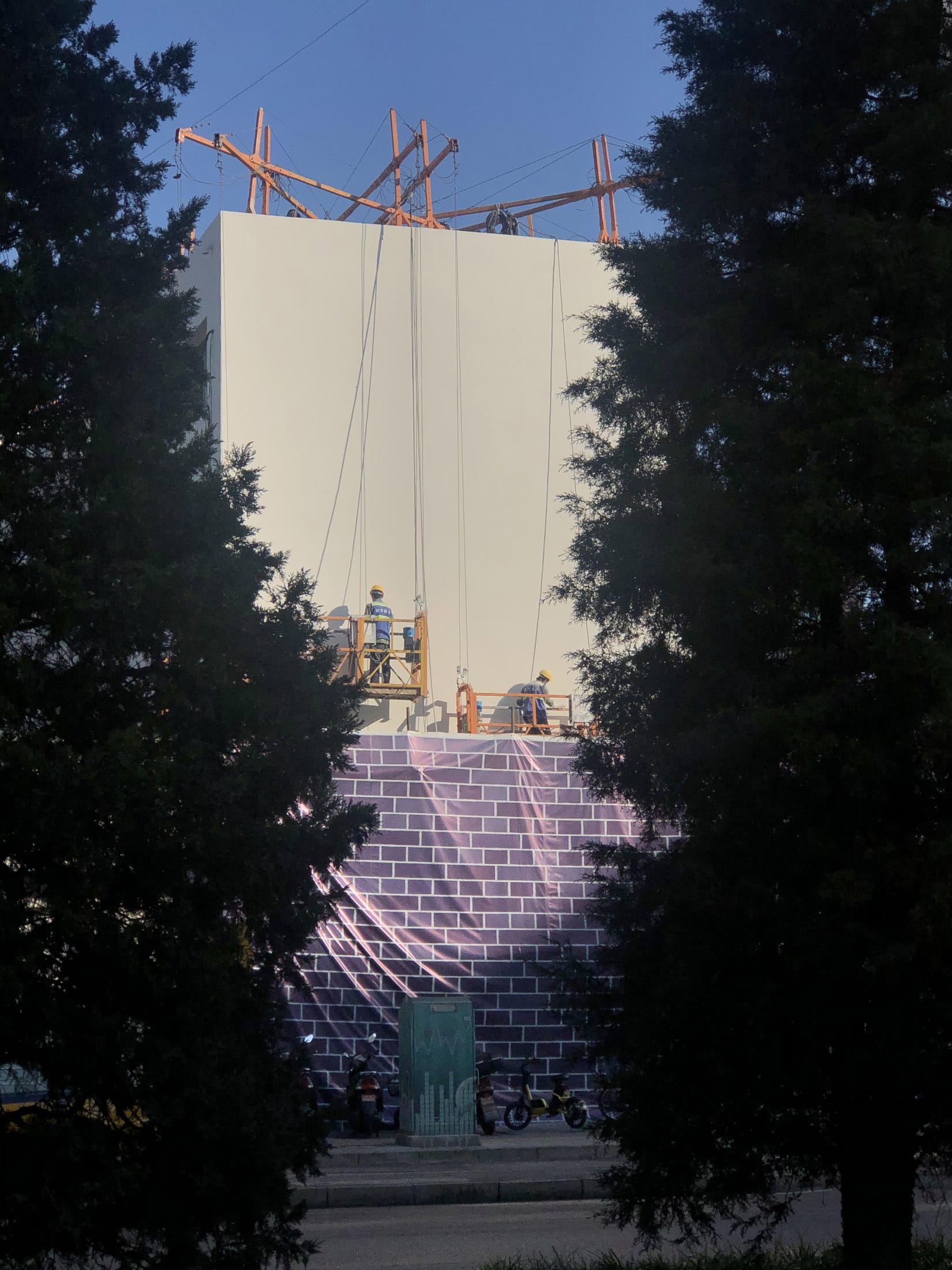 Stranger Than Science-Fiction?
by Samuel Kay and Muxia Liu
Urban Inequality, Density, and the Spatial Imaginaries of Beijing’s City Plan and Hao Jingfang’s Folding Beijing
residencyprojects
→ featured
Stranger Than Science-Fiction?
by Samuel Kay and Muxia Liu
Urban Inequality, Density, and the Spatial Imaginaries of Beijing’s City Plan and Hao Jingfang’s Folding Beijing
residencyprojects
→ featured
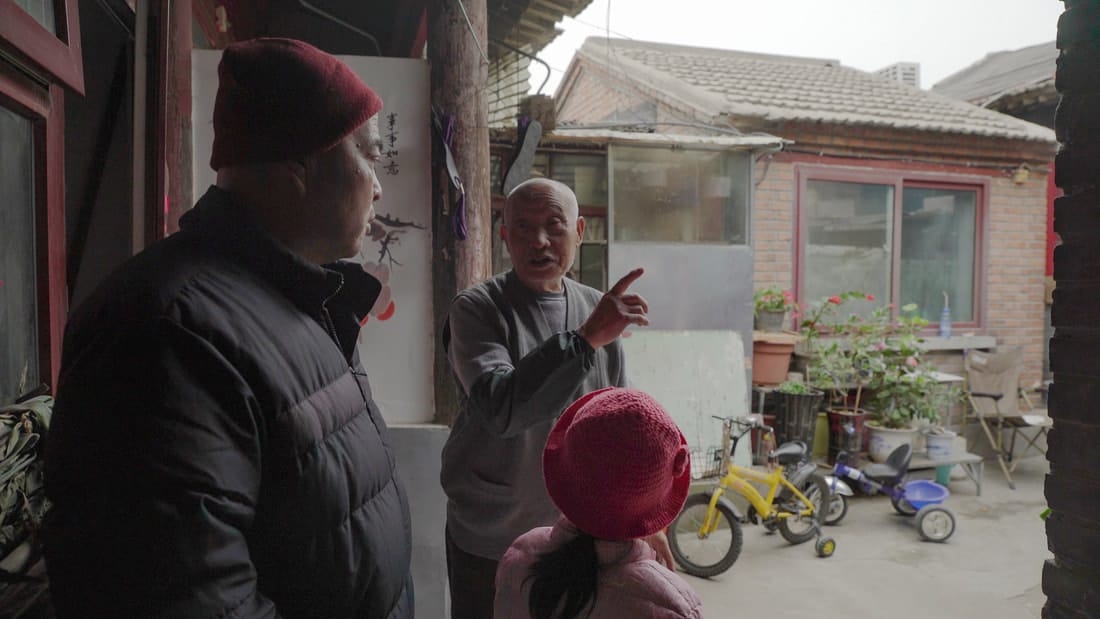 Walls and WalnutsMar 10, 2020
An ongoing project in a collaboration with artists Zhangbolong Liu and Jialin Yang
research-grantsprojects
Walls and WalnutsMar 10, 2020
An ongoing project in a collaboration with artists Zhangbolong Liu and Jialin Yang
research-grantsprojects
 A Thousand-Year StageAugust 2019
A Thousand-Year Stage (2019) is an experimental non-fiction film that features local residents of Xiongan New Area, Chinaʼs most recently planned megacity, awaiting its transformation. By Daphne Xu.
exhibitionprojects
A Thousand-Year StageAugust 2019
A Thousand-Year Stage (2019) is an experimental non-fiction film that features local residents of Xiongan New Area, Chinaʼs most recently planned megacity, awaiting its transformation. By Daphne Xu.
exhibitionprojects
past talks
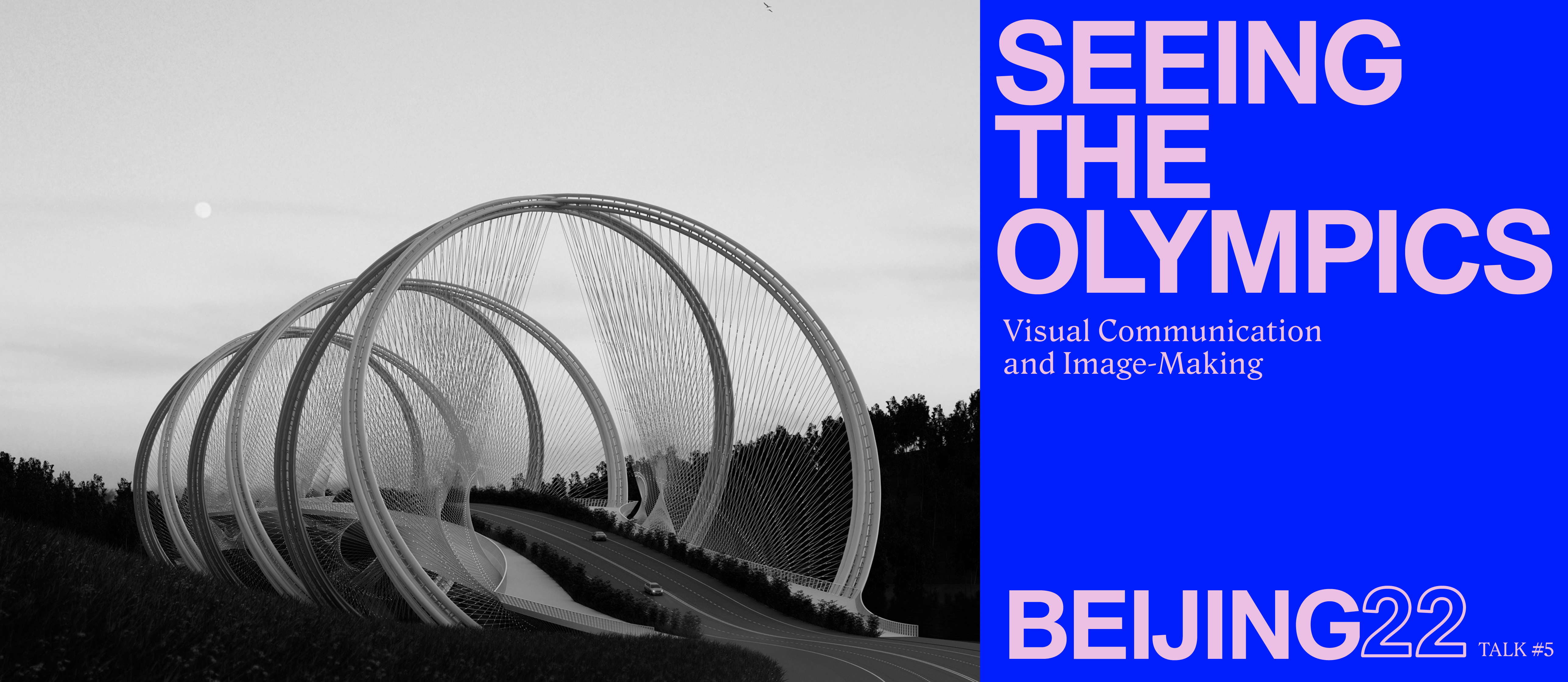 Talk No. 5: Seeing the OlympicsDec 7, 2019
Visual Communication and Image-Making.
talkconversations
Talk No. 5: Seeing the OlympicsDec 7, 2019
Visual Communication and Image-Making.
talkconversations
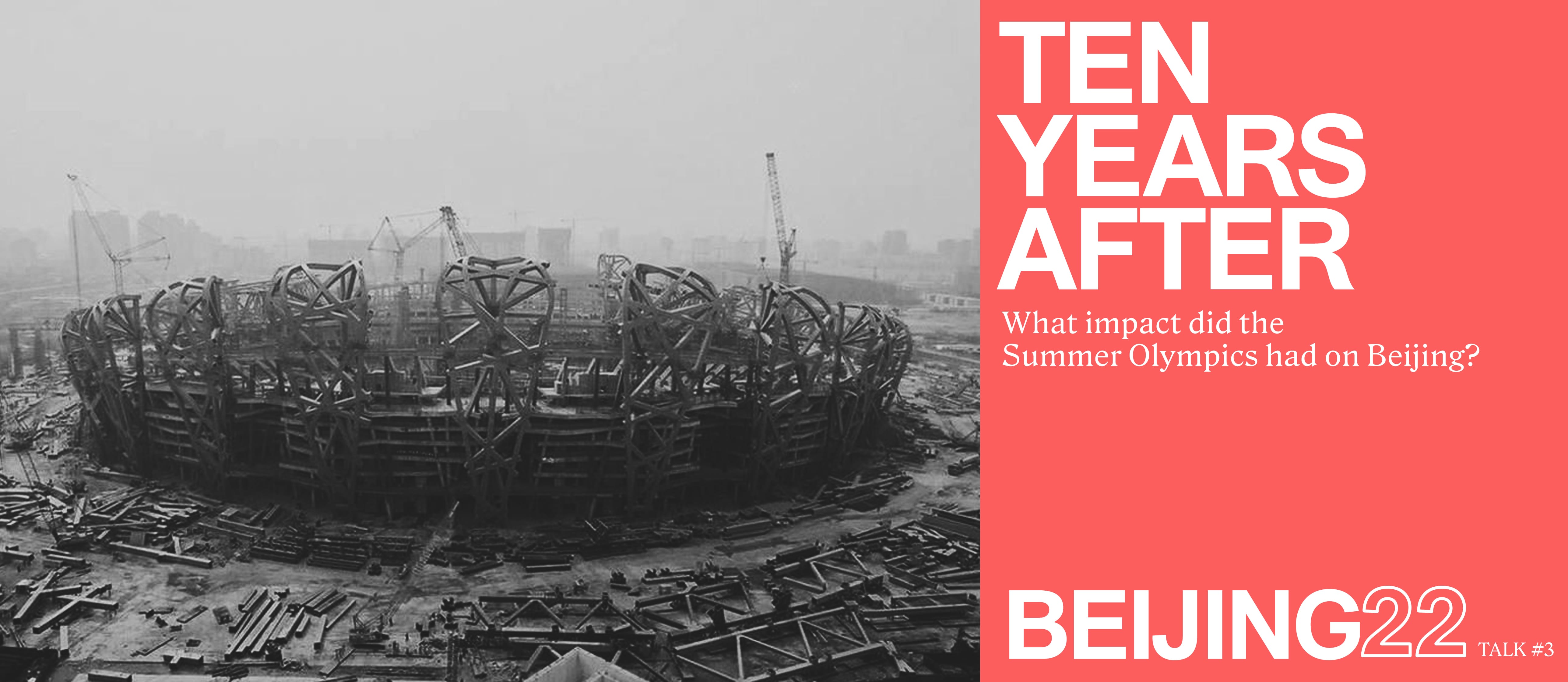 Talk No. 3: Ten Years afterDec 15th, 2019
In what way does the Beijing pre and post-Olympics Beijing differ? How are events like the Olympics utilized for a Chinese urbanization model?
talkconversations
Talk No. 3: Ten Years afterDec 15th, 2019
In what way does the Beijing pre and post-Olympics Beijing differ? How are events like the Olympics utilized for a Chinese urbanization model?
talkconversations
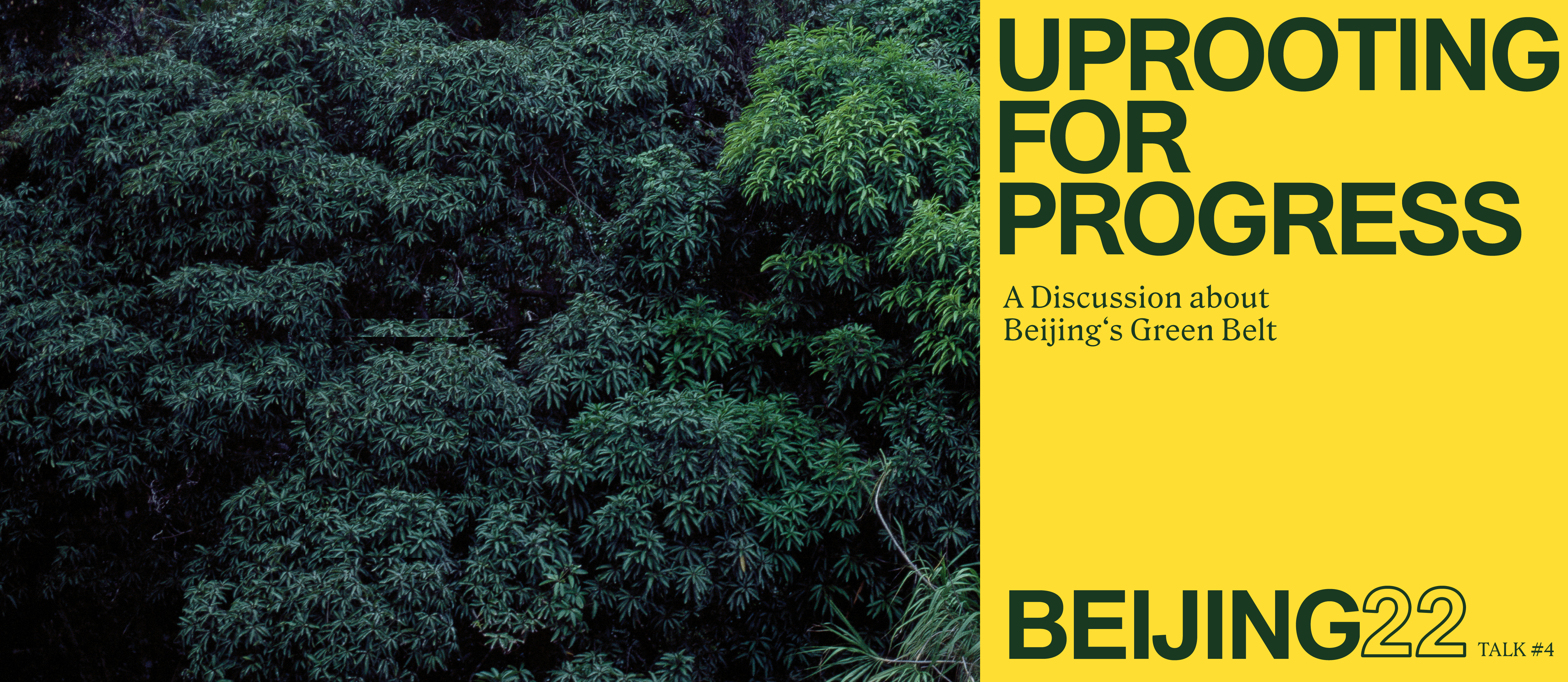 Talk No. 4: Green BeltNov 2, 2019
A common problem that cities all around the world are sharing is the growing urban pollution problem.
talkconversations
Talk No. 4: Green BeltNov 2, 2019
A common problem that cities all around the world are sharing is the growing urban pollution problem.
talkconversations
